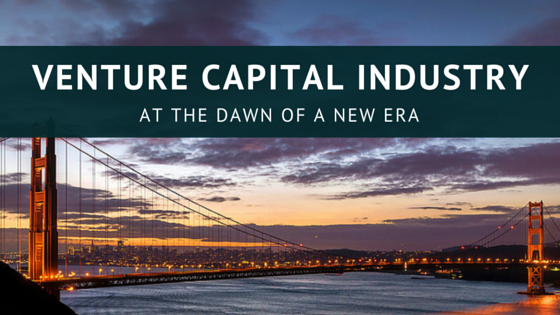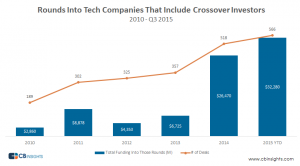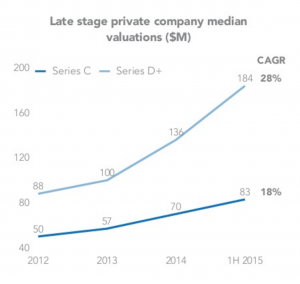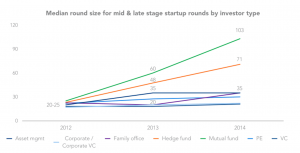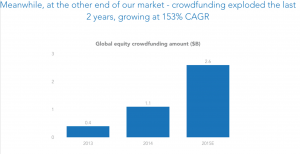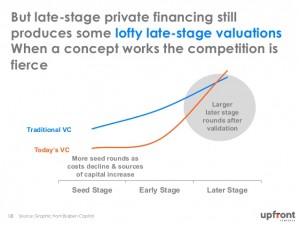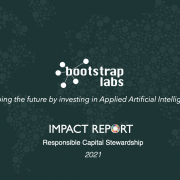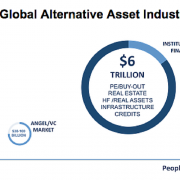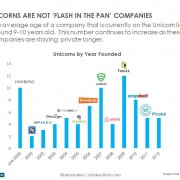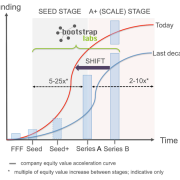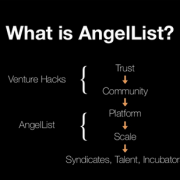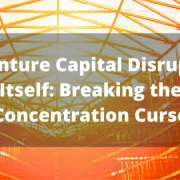Venture Capital Industry: At the Dawn of a New Era
2015 has been a banner year for BootstrapLabs. During the past 12 months, we led our first Series A round in an exciting FinTech company, all our portfolio companies raised follow-on funding at higher valuation and we continued to expand our Expert in Residence team to support our portfolio companies.
We believe that technology is a driving force for positive change in the global economy, in society in general, and our daily lives in particular. We continue to be impressed by the talent and passion our founders demonstrate every day and look forward to continuing investing in disruptive technology companies that can transform the way we live, the way we work, and the way we connect with the world around us.
Many believe private companies are overvalued, while others think the next tech bubble is coming. At the same time we see that seed stage investments, where BootstrapLabs focuses, are more vibrant and exciting than ever (e.g., a $25K seed stage investment in Uber would be worth ~ $125M at the $40B valuation mark; even if you assume that Uber is worth $1B, it would still be an investment worth ~ $3M, or 125x the invested amount).
BootstrapLabs is “deep in the stack” alongside its founders day after day, driving the venture market momentum forward. Our global innovation discovery network, combined with our Silicon Valley investment and execution model, provides us with a unique vantage point on what is happening in every corner of the world. Here is what we are observing:
The HOT tech industry is attracting new, mostly late stage, institutional investors that need to invest tens of millions per deal to move the needle.
In 2015, over 566 deals were financed by investment banks, mutual funds, hedge funds, asset managers, and others, while 78% of the deals over $1 Billion have been lead (read priced) by non-VC investors.
Late stage deals are becoming more competitive and less price sensitive due to a combination of i) pent-up demand driven by lower public market returns and the relative rarity of such high growth private technology companies and ii) more financial engineering and deal structuring that aims at lowering the risk for investors, independent of valuation paid (e.g. preferences, ratchets, dividends, etc.) Arguably, these higher valuations are behaving more like “out-of-the-money strike prices” of call options rather than rational valuations driven by operational and technological performance. The chart below outline the dramatic increase in valuation in the later stage as well as the larger amount of money invested by these non-VC investors.
There are also NEW sources of capital targeting the Tech Industry via Equity Crowdfunding and platforms that are driving retail investors into the venture market.
As these platform emerge and private companies can do “public offering of private equity”, secondary market for private equity trading/exchange will gain momentum and importance. One big signal of such trend was the recent acquisition of SecondMarket, the leader in the space by Nasdaq.
Why are non-VCs investing in the tech space?
Startups are staying private longer prior to IPOs today, which means that private investors are making the most of the value from their investment during the pre-IPO period. Traditional public investors, like hedge funds and mutual funds, are starting to realize that in order to capture more value they have to move earlier in the game and start investing in pre-IPO rounds (Private IPOs). See this prior post from Ben Levy, Co-Founder of BootstrapLabs on How to Milk a Unicorn…
Also, traditional VCs have realized that they have to invest earlier in the cycle in order to maximize their investments and not become irrelevant themselves in a world that is changing fast.
Value is Captured Earlier
Because it takes a lot less capital and people to build a proven and scalable product/model, early stage investment has become the most important and possibly the most lucrative part of the value creation chain in our opinion.
Later, Access is King
Late stage investors will only succeed if i) they can identify outliers early and ii) they can win a seat at the table during the next fundraising round (hint: money is not enough)
These structural changes, combined with deregulation, have created a once in a lifetime opportunity to form and scale new ventures, as well as new VC firms to finance them. As shown by this recent research report published by Cambridge Associate, more than ever before in the history of the Venture Capital industry, newly formed VC firms have been able to invest and capture some of the top performing startups.
Yet, the opportunities for individual investors remains limited as the industry is shifting to a new model/structure. Similar to the situation with established VCs and hot startups, an individual investor better gain access to future hot new VC funds/managers now, because the best performing funds will have limited access for existing LPs and possibly no access for non-existing LPs in their future funds.
Quality vs Quantity
The number of startups created each year has exploded and will continue to grow quickly as the cost of building technology companies has decreased by at least 10x in the last 20 years, and success stories continue to be blasted across the media as a source of inspiration and validation. The problem will be to identify the good startups as the noise level continues to rise.
Early stage growth no longer signals long term success and the ability to iterate, build and improve your product has become one of the most valuable success skills in the tech space. At BootstrapLabs we excel at finding top talent, bringing them to the best ecosystem (Silicon Valley) and supporting them in their full-cycle “build-measure-learn” iterations.
Innovation is a constant requirement for corporations to remain relevant and it is a pillar of subsistence for our society. Tech innovation will continue to grow and generate outlier returns for the best VCs (and their investors) in the industry. As someone recently mentioned to us “VC is at a dawn of a new era”. Just look at these numbers:
- 3.6 Billion unique mobile subscribers in 2014
- 2+ Billion people connected on major social media networks (1.4B FB, 250M TW, 300M LNKD, 300M Instagram)
- 120x faster online speed (6.7 Mbps US average today)
- 243 million machine-to-machine connections
- 50 Billion connected devices by 2020
- $1.7 Trillion e-commerce spend
The total of all the Unicorn valuations today is worth about half the value of Apple. Some of them will go public, some will be acquired. Apple could actually acquire most of the Unicorns and still have billions in its bank account to spare.
The slow growth in the number of IPOs is a consequence of a historical switch and the growing importance of innovation. Companies need to invest most of their cash flow in innovation, while public market investors expect short term revenue first. Many startups are building for long term success, and if they go public too early they will be unable to maximize their innovation or opportunity. As Marc Andreessen said during a recent interview: “It’s not a tech bubble, it`s a tech bust”… many of the innovation and technology companies are still undervalued and we are strongly optimistic about the great future in front of us”. So is BootstrapLabs!

